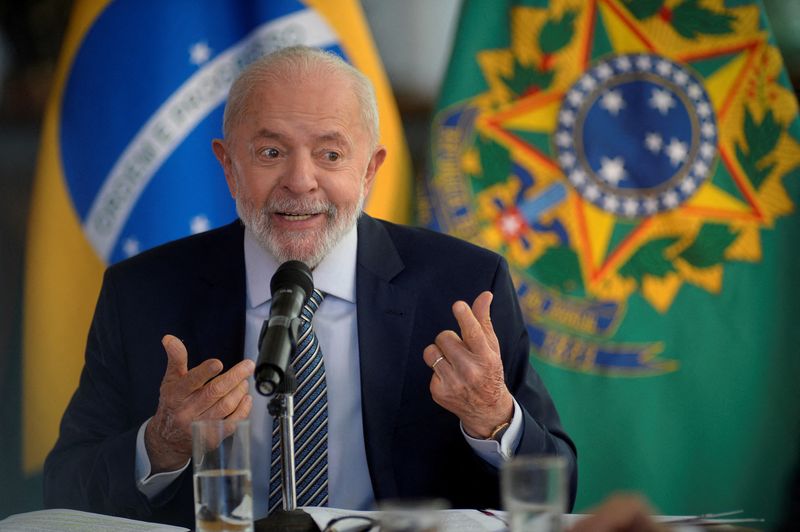SAO PAULO/BRASILIA (Reuters) -Brazil’s government denied on Thursday a report by CNN Brasil saying its highly anticipated package to rein in mandatory expenses would involve cuts of up to just 15 billion reais ($2.6 billion), an amount the market views as insufficient.
CNN Brasil reported that President Luiz Inacio Lula da Silva was reviewing two spending cut proposals, one for 10 billion reais and another for 15 billion reais, the latest aimed at the health and transportation sectors.
“It is important to note that this information does not reflect the discussions underway between the economic team, other ministries, and the Presidency,” the Finance Ministry said in a statement.
The report had prompted a further weakening of the Brazilian real against the U.S. dollar, while some short-term interest rate futures hit session highs, and Brazil’s equities benchmark Bovespa reversed early gains.
Analysts told Reuters Brazil needed a package containing 30 billion to 50 billion reais in spending cuts to reduce the risk premium on Brazilian assets, which have been affected by uncertainties surrounding public debt sustainability and volatility tied to the U.S. elections.
The central bank cited the need for structural fiscal measures as it accelerated monetary tightening on Wednesday with a 50 basis-point rate hike, bringing rates to 11.25%.
Previously, Finance Minister Fernando Haddad said the government would announce measures after the municipal elections concluded in late October to extend the lifespan of new fiscal rules introduced by Lula last year.
The fiscal framework combines primary budget targets with a cap for overall spending growth to a certain threshold above inflation.
However, with many mandatory expenses – such as social benefits and pensions – growing at a faster rate, the framework restricts room for investments and operational spending.
Numerous economists warn that without reforms to change spending dynamics, the framework could become unsustainable in a few years, limiting its effectiveness in controlling Latin America’s largest economy rising public debt.
($1 = 5.6822 reais)




